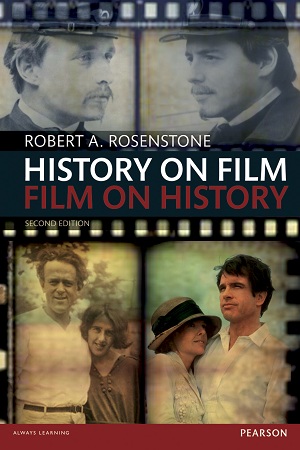History on Film/Film on History
History on Film/Film on History
-- Robert Burgoyne, University of St Andrews
“Robert Rosenstone’s History on Film/Film on History is a provocative, important book about nothing less than how we define history in the twenty-first century. ... [It] offers a compelling case for the power of film to make visible larger historical truths. ... a must read for anyone who cares about history in an age of mass culture.”
-- Alison Landsberg, George Mason University
“In its second edition, Rosenstone’s book remains a benchmark in the ever-expanding fields of film history and history.”
-- Frances Guerin, University of Kent
“This book is by the first and foremost writer (Robert Rosenstone) on how film and history is problematic and how one delves into why it matters. Very few academics and historians have touched the subject . . . because of obvious dilemmas film produces when reproducing the past. He doesn't go into film theory to the point of being numbing, but gives the reader some information about how films may be perceived and interpreted in order to give a better understanding of the past (or the present).”
-– Kino Chelovek, Amazon
History films have often been criticized by academics and journalists
as inaccurate depictions of the past. Yet there is no escaping the
fact that blockbuster history films, documentaries and docudramas
are increasingly influential in shaping our understanding of
historical people and events. The very controversies that erupt
over so many historical films are testament to the central role that
films play in making history accessible.
Publishing Information
2006. Publisher: Pearson. 2nd Edition: 2012. 3rd Edition: 2017
Translations/Foreign Editions: Spanish, Portuguese
|
|
